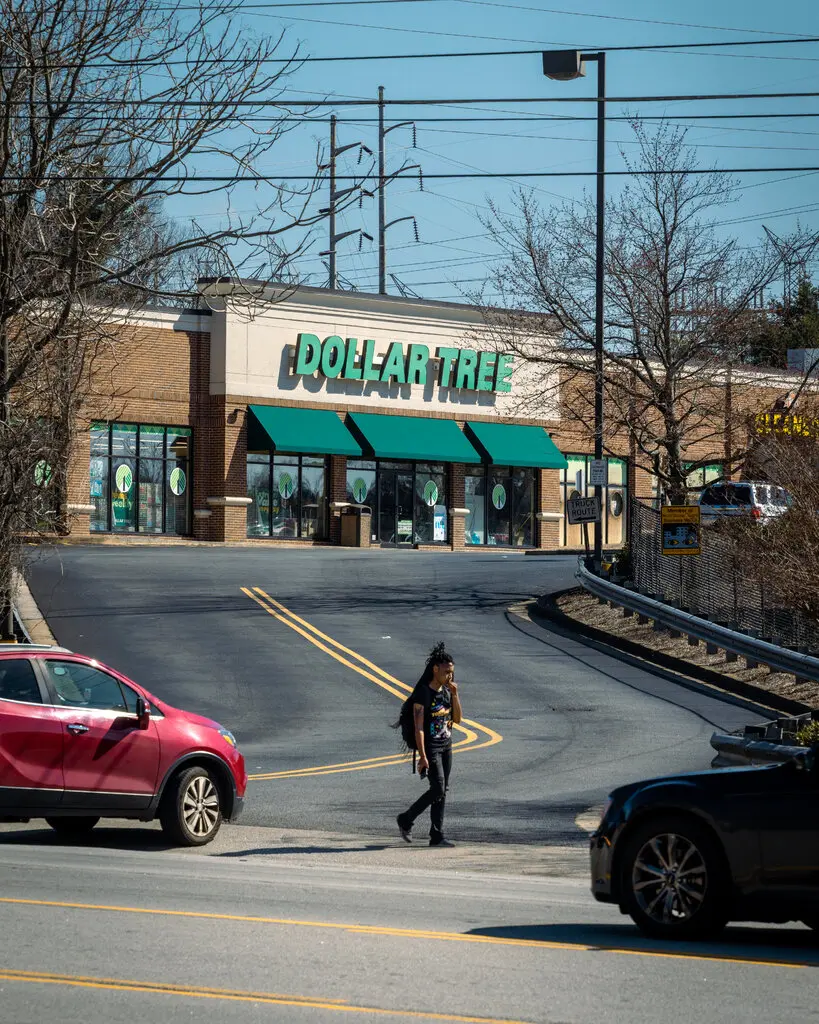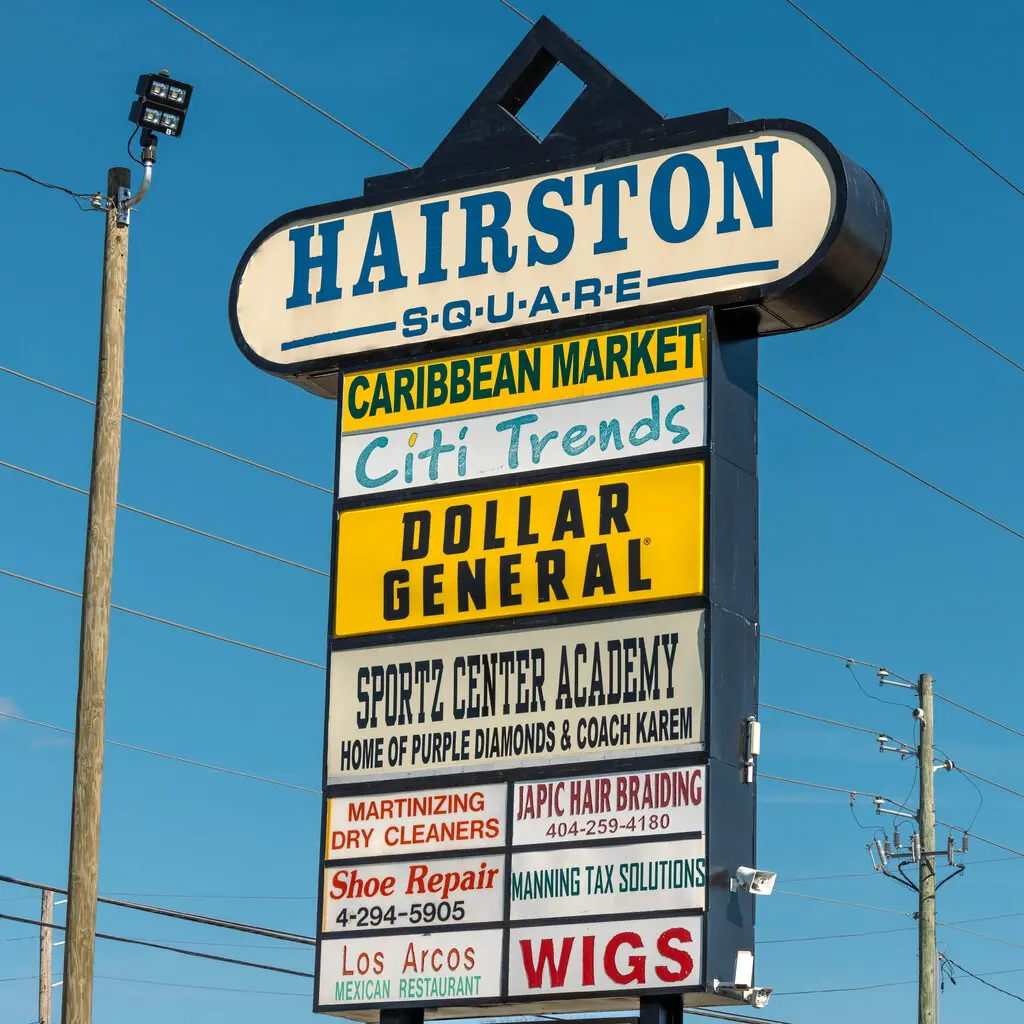More than 70 proposed dollar stores have been rejected since 2019, a report shows. It’s a small number compared with those that opened but evidence of opposition to the industry.

Since 2019, roughly 50 municipalities have enacted moratoriums or other broad limits on dollar store development.Credit…Audra Melton for The New York Times
By Michael Corkery, The New York Times
Morgan, Minn., a city of about 800 people, has two restaurants, several churches, a grain elevator and one small grocery store that sells rib-eye steaks that, according to the mayor, “are the best around.”
The mayor, Jerry Huiras, 76, is protective of the lone grocery, a family business that dates back many generations and operates in a downtown dotted with empty storefronts. So when he got wind in late 2020 that Dollar General was planning to open a store near the town limits, and that this fast-growing national discount chain was known for undercutting local grocers with its low prices, Mr. Huiras vowed to prevent that outcome in Morgan.
Armed with a petition signed by more than a hundred people, Mr. Huiras was direct in addressing the developer seeking zoning approval to build the Dollar General. “We just don’t want your store,” Mr. Huiras, a Republican, recalled telling him.
Morgan is part of a movement of municipalities across the United States that have pushed back against the dollar store industry’s rapid growth during the pandemic.
Since 2019, at least 75 communities have voted down proposed dollar stores, while roughly 50 have enacted moratoriums or other broad limits on dollar store development, according to a new report by the Institute for Local Self-Reliance, an organization that is critical of corporate retailers and their impact on communities.
By comparison, from 2015 to 2018, about 25 communities voted down proposed dollar stores while only six enacted moratoriums or ordinances limiting their growth.
While the number of blocked stores is much smaller than the thousands that Dollar General and similar chains have opened in recent years, the movement against the industry has created an unusual group of allies. On many other issues, they disagree, but they are united in their fight against dollar stores.
Rural, Republican-leaning communities in places like southern Virginia and North Carolina are pushing back against dollar stores. (In 2020, President Donald J. Trump easily carried Morgan, Minn.) And leaders in cities like Toledo, Ohio, and Birmingham, Ala., have also mounted opposition, saying the stores are fueling crime and unhealthy food choices. Across Georgia, 18 cities and towns have restricted dollar store development, according to the think tank’s report.
The stores typically operate with lean staffing, and their employees, by some measures, are paid at the bottom of the retail industry’s scale. According to a survey by the Economic Policy Institute, a liberal think tank, 92 percent of Dollar General workers earn less than $15 an hour, lower than many other companies surveyed, including Burger King, Walmart and Dunkin’. About 20 percent of Dollar General workers earn less than $10 an hour.
At the same time, the company is highly profitable. In December, Dollar General said its quarterly operating profit had increased about 10 percent from a year earlier while net sales had increased 11 percent, to $9.5 billion.
More than one-third of all stores that opened in the United States in 2021 and 2022 were dollar stores. Dollar General alone opened 2,060 locations during those years, far more than any other retailer, according to Coresight Research, and the company now operates 19,000, more than twice as many as Walmart and Target combined.
“As divided as Americans are politically, there’s remarkable agreement that too much of what passes as a legitimate business model is, in fact, fundamentally destructive and unfair,” said Stacy Mitchell, a co-executive director of the Institute for Local Self-Reliance. “Federal policymakers have let big corporations run amok. Cities and towns of all stripes have learned that if you want to protect your community, you have to do it yourself.”

After Lorraine Cochran-Johnson was elected a commissioner in DeKalb County, Ga., she persuaded the commission to pass a moratorium on dollar store developments.Credit…Audra Melton for The New York Times
Dollar General said it was often filling a void in parts of the country where many retailers did not operate. The company said that 75 percent of its stores were in towns with fewer than 20,000 people, and that it had been significantly increasing the number of its stores that sell produce.
“We believe the passage of moratoria harm customers who depend on us to help them stretch their budgets, particularly in inflationary times,” Dollar General said in a statement.
Dollar Tree, which also owns the Family Dollar chain, said its stores had helped alleviate “food deserts” and revitalize struggling strip malls by providing an affordable and convenient place to shop.
”We often take over vacant space in neighborhoods and areas that are already challenged, keeping centers and other adjacent businesses open and serving communities, especially those that are underserved,” Dollar Tree said in a statement.
When Lorraine Cochran-Johnson was first running for a seat as a county commissioner in DeKalb County, Ga., in 2018, dollar stores were not something she paid attention to. But after a woman at a campaign event warned her about the stores’ impact on Black neighborhoods, she began to do some research online and by simply looking around her district, just east of Atlanta.
The stores were mostly in predominantly Black neighborhoods. She also witnessed, over a two-week span, two brazen thefts at the same dollar store.
She talked with one of the cashiers about the crimes. “She told me, ‘This is business as usual,’” Ms. Cochran-Johnson said. “There was a normalcy to this situation that no one should find normal.”
Ms. Cochran-Johnson, a Democrat, was elected to the commission in 2019. The next year, she persuaded the commission to pass a moratorium on dollar store developments in DeKalb County.
The moratorium ended in December, but the county is putting into effect new requirements for dollar stores, including that they install video surveillance in their stores and parking lots and turn over security camera footage to the police within 72 hours of a crime. A new store cannot be within a mile of an existing store, and 10 percent of a store’s shelf space must be dedicated to “healthy foods,” a category that includes frozen vegetables.
“This is about community and creating the best outcomes,” Ms. Cochran-Johnson said.
In its statement, Dollar General said, “We appreciate the positive and ongoing conversations with the county commissioners on ways we can continue to invest in, and provide access to, affordable, everyday essentials, including produce, to DeKalb County residents.”
Regarding the issue of crime, Dollar Tree said, “We continually invest in deploying proven crime-reduction technologies in stores located in higher-crime areas and use risk-based analysis and tactics to reduce incidents in our stores.” The company added that it turned over surveillance footage whenever law enforcement requested it.
The opposition to dollar stores is reminiscent of the pushback against Walmart’s expansion in the 1990s and 2000s and the concern that the giant retailer would wipe out small, Main Street stores.
But the anti-Walmart campaigns were concentrated in the Northwest and on the West Coast. And some of the criticism of the company was stoked, in part, by labor unions, which were trying to pressure the fiercely nonunion retailer.
Walmart’s growth set the stage for the dollar stores’ business model. Walmart hurt small retailers that couldn’t compete with its low prices and huge scale, and the company was criticized for hollowing out local retail corridors.
But there was a limit to Walmart’s physical growth. Its large-format stores, designed essentially as regional shopping hubs, are not suited to every community, whereas dollar stores have smaller footprints that require less land and fewer infrastructure improvements.
Ms. Mitchell said that antitrust enforcers had failed to act against Walmart but that the Institute for Local Self-Reliance was urging the Biden administration to start reining in the dollar store industry, which has powerful leverage with suppliers that impedes smaller retailers’ ability to compete.

Dollar store executives say the stores often revitalize struggling strip malls.Credit…Audra Melton for The New York Times
The dollar stores’ growth shows no signs of abating. With inflation still high, discount stores are attracting budget-conscious customers.
In the end, financial analysts say, consumer interest will be the biggest driver of whether the stores continue to spread.
“Sales are really strong,” said Shannon Warner, a partner in the consumer and retail practice of Kearney, a global strategy and management consulting firm. “Consumers are voting for dollar stores with their wallets.”
When concerns over the proposed Dollar General in Morgan emerged, Mr. Huiras, the mayor, confessed that he had never been to a dollar store.
So Mr. Huiras, who worked in railroad construction until he retired and ran for office, drove to Fairfax, a town 18 miles away, where a dollar store had recently been built. A local electrician said the store had been built entirely with laborers who drove in each day from outside the area. The owner of a local farm equipment store told him that the members of the construction crew had bought exactly one nut to replace one they had stripped — and nothing else from his store. Mr. Huiras said that was when he knew the company would not be invested in his community.
Because the Morgan store would be outside the city limits, it required zoning approval by the county.
One of the owners of the Super Valu grocery store in Morgan, according to the minutes of a county Planning Commission meeting in January 2021, told officials that she estimated a Dollar General would reduce her store’s revenue by as much as 20 percent during its first two years of operation. She said a grocer in a nearby town had closed shortly after a Dollar General opened there.
Other residents expressed concern that Dollar General was a large corporation, and one person said the chain was simply not a “good fit” for their small community.
In the end, the Planning Commission recommended denying the zoning application. The next month, the county’s Board of Commissioners voted unanimously to follow that recommendation. “And they never did bother us again,” Mr. Huiras said.
Read the original story on NYTimes.com.











